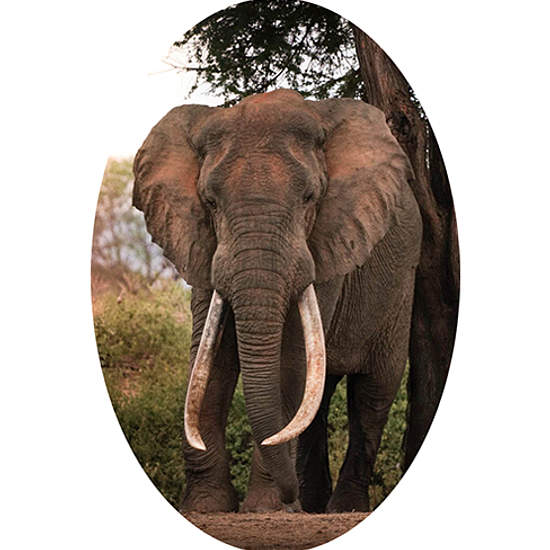African Elephants
As well as being the largest land mammal on earth, elephants are a keystone species and play an important role in the environment where they live. However, having roamed the wild for 15 million years, today, this iconic species faces the biggest threats to its survival due to ivory poaching, human-wildlife conflict and habitat destruction.
Fun Facts
Elephants are smart, emotional, self-aware and highly social creatures
The ears of an African Elephants can reach up to 5 feet long. When flapped, they act as big fans, cooling the blood that runs close to the surface behind their ears.
Elephants are herbivores (vegetarians), eating a diet of grass, fruit, leaves, twigs, and tree bark.

Elephants are known for their incredible memory. Matriarchs will remember the trails and watering holes and how to navigate the seasons, all knowledge handed down by their ancestors for generations, and knowledge so vital for their survival.
Elephants will walk at the pace of their slowest member, with infants surrounded by nurturing members of the herd, and their young babies are always protected from the elements, like the wind, the rain and the sun.



Comment (0)